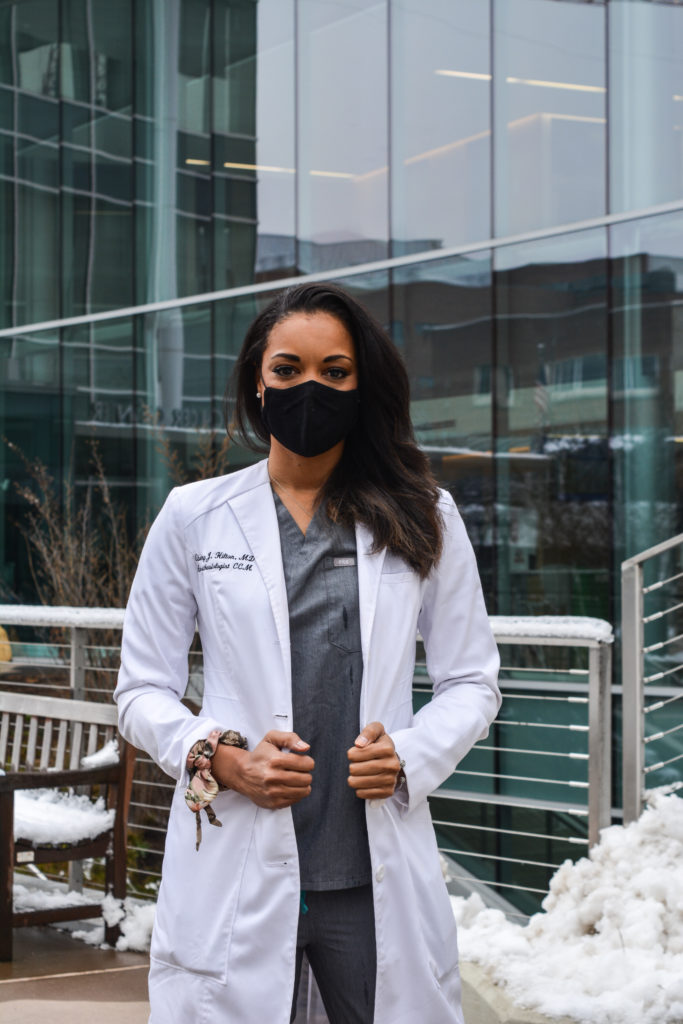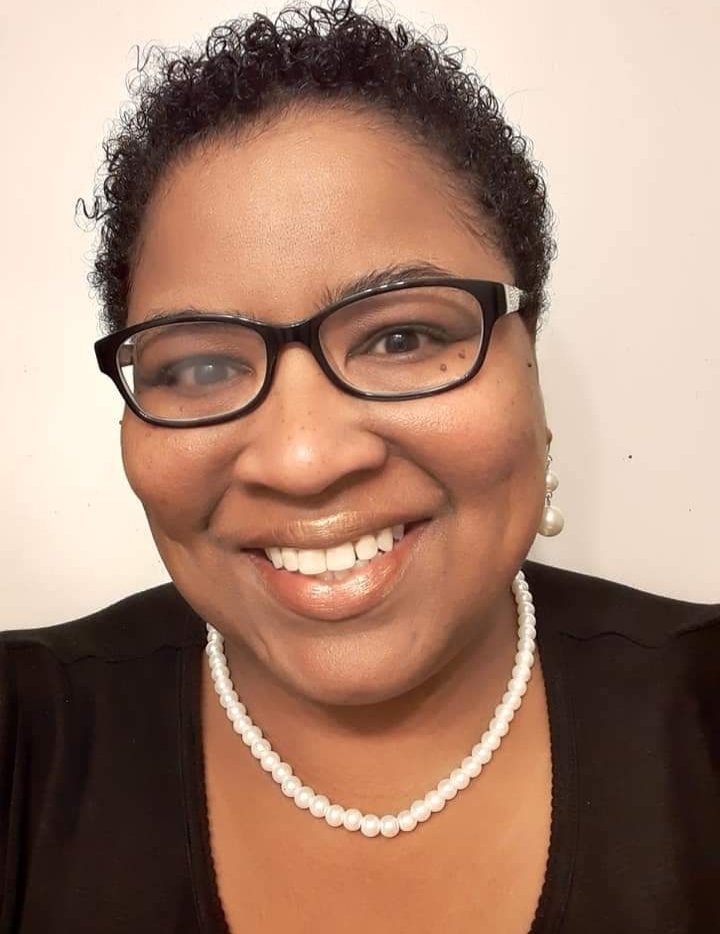Determined
This series uses the Social Determinants of Health as a foundational framework and guideposts to bring you stories of how the COVID-19 crisis has impacted some of our African American communities.In the final month of the turbulent year 2020, Sandra Lindsay – a New York City critical care nurse, who also happens to be a Black woman – became the first American outside of clinical trials to receive the COVID-19 vaccine. Now, nearly two months later, Black Americans continue to die from the coronavirus at disproportionate rates, almost three times that of white Americans. Though Black people are impacted most severely by COVID, they make up less than 6% of the millions of Americans who’ve been vaccinated; Latino people account for only 11% of vaccinations in the country. In Charlottesville and the surrounding region, the statistics tell a similar story, and a chorus of community voices calls for change.
As of Feb. 5, the Blue Ridge Health District has administered 5,642 doses of the vaccine, according to a statement from Dr. Denise Bonds, director of the health district, in response to a Freedom of Information Act request from community advocate Myra Anderson. Of those vaccinated, 4,873 of those people were white and 426 were Black. Importantly, these numbers represent only the vaccines that BRHD has administered, not the total number of vaccines administered in the district; both the University of Virginia and Sentara Martha Jefferson hospital systems are coordinating their own vaccination efforts.
To put into perspective the figures revealed by Bonds, consider that the Blue Ridge Health District serves more than 250,000 people in the city of Charlottesville and in Albemarle, Greene, Fluvanna, Louisa and Nelson counties; the majority of these people are white, yet Black and Latino people account for more than a quarter of the district’s total COVID case count, 43% of COVID hospitalizations, and 22% of COVID deaths, according to data gathered from its website on Feb. 13.
Although the area’s vaccine distribution has been admittedly hampered by limited supply, and hiccups at the state and federal levels, the process, spearheaded by the Blue Ridge Health District at the direction of the Virginia Department of Health, “has clearly been lacking,” said Dr. Ebony Hilton, an associate professor of anesthesiology and critical care medicine at the University of Virginia. It’s a problem she attributes to a “trickle-down” impact from the flawed federal vaccination response.

Dr. Ebony Jade Hilton, associate professor of anesthesiology and critical care medicine at the University of Virginia.
Credit: Lorenzo Dickerson
“So we say, ‘Phase 1A and Phase 1B makes sense,’ but let’s examine that,” Hilton said, referring to the phases of vaccination set by the Virginia Department of Health, which determines which groups are offered the vaccine first.
Healthcare workers and residents and staff of long term care facilities comprise Phase 1A; frontline essential workers, adults age 65 and older, people age 16 to 64 with preexisting health conditions that put them at greater risk of contracting COVID-19, and staff and residents of correctional facilities, migrant labor camps and homeless shelters round out Phase 1B.
“Honestly, when we look at who’s dying most from COVID, who is being hospitalized with the most severe COVID symptoms, certain segments of the public – including Black [people] and brown [people] and communities of color – are obviously at much greater risk,” she said.
Additionally, cultural norms fueled by inequality may put these communities at a disadvantage concerning vaccination, Hilton said.
“Many of our [Black and Latino] elders are not living in long-term care facilities because many of their families don’t have the personal resources to access the care there. We know that Black families have less generational wealth than white families” due to financial inequities that were present long before the pandemic, Hilton said. “So, often, these older folks of color are at home, sometimes living with multiple generations of their family under one roof. That’s a higher risk for COVID-19, but these types of folks can’t get the vaccine within the current phasing guidelines.”
The Blue Ridge Health District, formerly the Thomas Jefferson Health District, changed its name at the start of the year. Removing the president and slave owner’s name from its moniker is reflective of the agency’s commitment to understanding and serving the diverse communities it serves, said Rebecca Schmidt, BRHD’s director of partnerships and strategic initiatives.
“It’s a symbolic change; it’s a signal that we’re committed to the work of improving equity in health care, but it’s not the end of the work,” Schmidt said. She acknowledges the community concerns that the vaccine is not being distributed equitably and says that technology has contributed to this challenge.
“When we talk about equity, the IT systems that were built for [COVID vaccination] registration and appointments were not built with equity in mind,” Schmidt said.
She said BRHD is working with its partners at UVA and Sentara – who are each leading their own vaccination efforts – to create a more localized dashboard that will include racial equity in its analysis of the vaccination process as it continues unfolding.
In the meantime, the BRHD says it is actively partnering with community advocates and organizations to host vaccination events throughout the district, in a targeted focus on improving Black and Latinx residents’ access to the vaccine. One such advocate, Myra Anderson, has been vocal about her community’s concerns, ranging from a perceived lack of transparency about who is getting vaccinated (hence her FOIA request) to issues with the way the district has disseminated vaccine information.

Myra Anderson
Credit: Submitted by Myra Anderson
“The forms to register for the vaccine, they are all online,” she said. “If you don’t have high-speed internet access or even a personal computer at home,” a reality for some members of marginalized communities in the Charlottesville region and across the state, “online-only forms are a barrier for you. We really need … to be more inclusive in their thinking and planning of this process.”
Anderson said she, and a group of the area’s Black leaders, helped to plan a vaccination event originally slated for Feb. 13 but rescheduled due to inclement weather. Several organizations, including BRHD and Sentara, backed the event, which was a targeted effort to vaccinate Black people and others of color in the region. Anderson says these events are also an opportunity for BRHD and other groups to build trust with the Black community.
“Black people have a right to hesitancy! Especially with our history,” Anderson said, noting historic examples of the medical establishment’s mistreatment of Black people, such as Henrietta Lacks.
Lacks, a Black woman born in Roanoke in 1920, unwittingly became the donor of “immortal” cells – taken from her cancerous cervix by white doctors without her consent – which changed the course of medical and scientific history. Lacks’ “HeLa” cells expanded research capabilities, contributed directly to a cure for polio, and were the first human cells sent into space; they remain an inconceivable gift to humankind. Lacks died in poverty in 1951 and was buried without benefit from the incredible cells taken from her body without her knowledge or permission.
Considering Lacks, and other chilling examples like The Tuskegee Syphilis Study, Anderson said a little lingering unease towards medical authority is to be expected and should not block Black people from accessing the coronavirus vaccine. If Black people in the region express hesitancy or distrust about the vaccine, BRHD and other agencies should not “think that it’s a hard no; think it’s a slow yes and take every opportunity to show us you care about equity like you say you do.”

CVS is preparing for a nationwide rollout of the COVID-19 vaccine.
Credit: Lorenzo Dickerson
Schmidt said that the BRHD continues working to ensure its coronavirus vaccination rollout is as equitable and accessible a process as possible, and will build on the work it began with the publication of its MAPP2HEALTH report in 2019. The study highlighted the systemic, structural racism present in and supported by Virginia’s public health system since its inception, and pinpointed various means to mitigate these historic wrongs with the guidance and aid of its Black residents and other groups of color. Hilton has some suggestions for them, the state and federal health agencies, too.

The vaccination clinic planned for Feb. 13 was canceled due to inclement weather.
Credit: Lorenzo Dickerson
“The first would be [to implement] age adjustment along the lines of race,” into vaccine phasing, she said. “We know what the numbers show; instead of saying a blanket age of 65-plus or 75-plus, when we know Black people are dying at an early age, it should be adjusted to reflect that.”
She echoed Anderson’s calls for improved communication, including physically mailing vaccine registration information to all available addresses so that homes without reliable internet access don’t miss out, and collaborating directly with Spanish-speaking health workers to break down language barriers and increase access in Hispanic communities. Ultimately, local, state, and federal entities “need to build equity into every, single structure and strain of our health care systems.”












